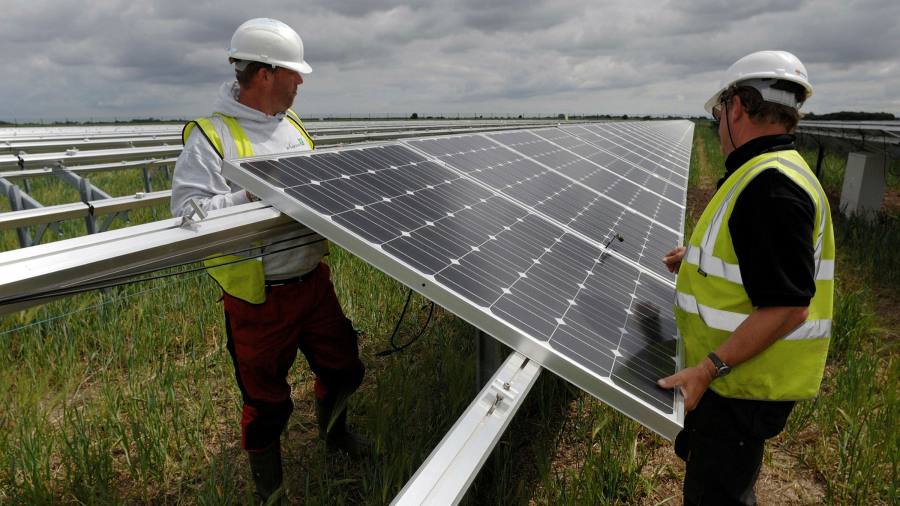[ad_1]
Nest, the UK’s largest workplace pension scheme with 10m members, has begun a £1.4bn green energy push after agreeing an infrastructure partnership worth an initial £250m with Octopus Renewables, a specialist clean energy provider.
Pensions funds worldwide are facing growing demands from younger environmentally conscious savers to accelerate the transition to a low carbon future. The move by Nest comes ahead of the UN COP26 climate summit in Glasgow this year where fresh proposals to curtail catastrophic global warming will be debated.
Nest, which already manages more than £16bn of UK pension savings, will invest directly into onshore wind and solar energy projects in the UK and Europe as part of its aim to become a net-zero carbon scheme by 2050 at the latest.
“Investing in British green energy means our members will be investing in projects they can see and touch, a tangible connection to their pension and a way out of the climate crisis,†said Mark Fawcett, chief investment officer at Nest.
It is in the process of finalising a pair of additional clean energy infrastructure mandates with two asset managers which are expected to be announced shortly.
The investment by Nest in green energy could reach £2bn by the end of the decade, depending on the pace of new inflows from the scheme’s members and growth in demand for renewables.
“Every new renewable energy project provides greater energy security, increases potential returns and contributes to tackling the climate emergency,†said Fawcett.
Octopus is one of the largest developers of renewable energy infrastructure in Europe with a portfolio of solar, wind and biomass projects valued at more than £3bn.
“Pension funds and their members have a critical role to play in fighting climate change,†said Chris Hulatt, co-founder of Octopus. “There is a real opportunity here to help deliver the energy transition, meet net carbon zero targets and shape the green economy.â€
Renewables contributed 40.2 per cent of the UK’s total electricity generation in the third quarter of 2020, compared with the 42.5 per cent share provided by fossil fuels, almost all of which came from gas.
The UK government in November announced a 10 point green industrial revolution plan which will mobilise £12bn of public investment with the aim of attracting three times as much capital from private sector sources. Prime minister Boris Johnson wants to quadruple the UK’s offshore wind power generation capacity by 2030 as part of his “build back better†proposals after the coronavirus pandemic.
Fawcett said millions of UK pension savers wanted to “play their part†in the green industrial revolution. He rejected any suggestion that Nest had faced government pressure to help fund its post-pandemic recovery plans.
“There was no pressure from government. Clean energy will benefit all our members and we hope this move will encourage other pension schemes to follow,†he said.
A survey of 1,183 pension savers conducted by YouGov in July found that almost two-thirds of respondents thought their retirement scheme should invest in a way that reduced the damaging impact of climate change.
[ad_2]
Source link





